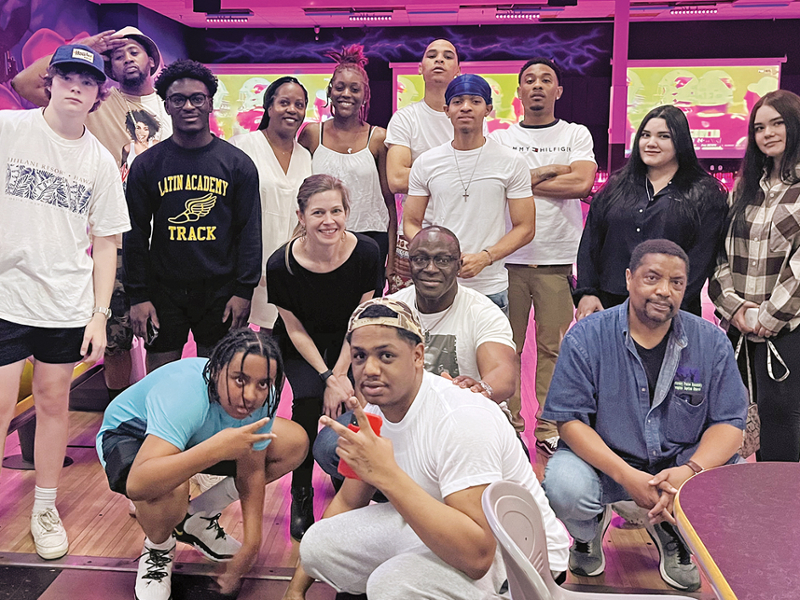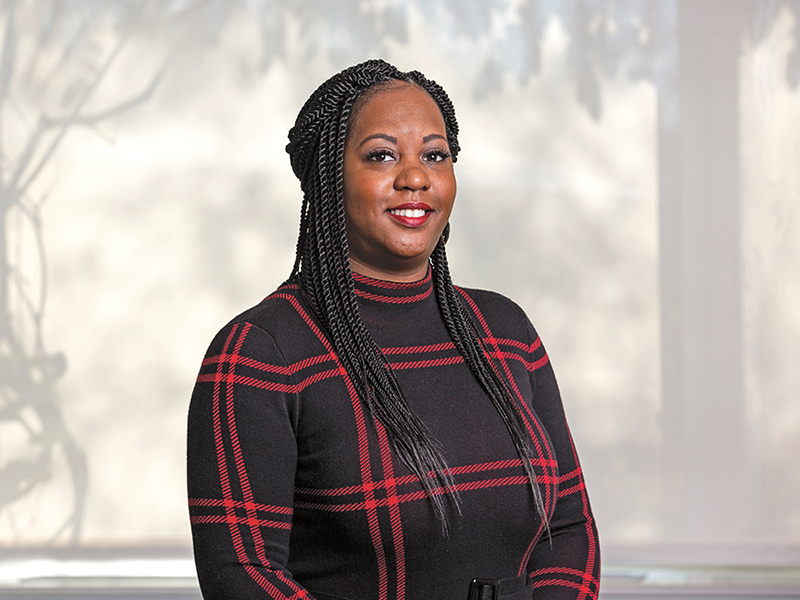
Technology has been used in a negative way to monitor people, says Racial Justice x Tech Policy (RJxTP) associate director Janelle Ridley, but technology can also be used to tell their stories.
Ridley, who is also a Heller PhD student, recently traveled with SEED Institute (System Educated Expert Disrupters) researchers and game designers to the Equal Justice Initiative (EJI) in Alabama to research the history of surveillance of Black and brown people in the United States.
As a SEED Institute co-founder, Ridley is working with youth game designers to develop a computer game that depicts the inequities and injustices they have experienced, with the goal of sparking conversations about systems change.

With Ridley’s mentorship, and support from the Kapor Center, the youth are using their experiences with the justice system to design a computer game with iThrive Games that explores how technology is used to monitor people. The research also connects to Ridley’s dissertation, which examines how young people can help disrupt and dismantle the cradle-to-prison pipeline.
At EJI, what resonated with Ridley most was the loss of identity that so many BIPOC experienced when assimilating to white American culture, and how they had no way to connect with their ancestry and culture.
“There was good and bad to what I saw,” she says. “It just reminded me of the strength of the Black and brown community for all that we have endured and continue to endure, and that we are still persevering.”

Ridley adds that the youth remarked on how similar slavery was to the modern carceral system. “They feel like nothing has changed for them,” she says. “For those who have been in the system, seeing the slave quarters is similar to what they have seen [in juvenile detention centers and prisons].”
While there has been much progress since the civil rights movement of the 1960s, the U.S. still struggles with so many issues of injustice, one anonymous participant shares. At times it can seem overwhelming that there is so much work that still needs to be done, but it’s important to remember that a series of small changes can amount to a big impact.
“Even if it might seem sometimes like it’s not enough, or we need more, those small victories that come over time — hundreds and hundreds of small victories — those, in time, turn into huger victories,” he says.
